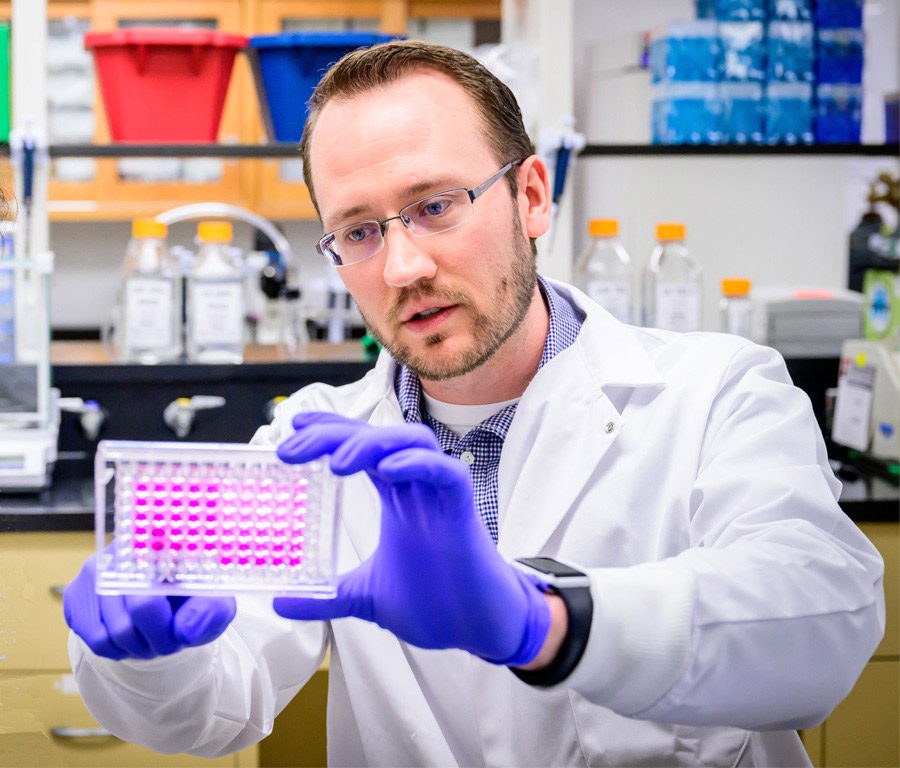Dr. Megan Mahoney, associate professor of comparative biosciences, will receive $50,000 from a Carle Foundation and University of Illinois initiative for a research project that will focus on the impact of hormonal changes and environmental chemicals on sleep disruptions in menopausal women.
She has an extensive research background studying hormones and biological rhythms, and is interested in examining the effect of estrogen on daily circadian rhythms. With the grant funding, her team will study hormone fluctuations in women going through menopause and look at the impact of endocrine changes on sleep alterations.
Dr. Mahoney’s grant is one of five proposals awarded by Carle Foundation and the University of Illinois in 2017, the second year of the Carle Illinois Collaborative Research Seed Funding Program. The goal of this program is to jump-start collaborative research projects that present opportunities to improve health.
Her research team includes additional faculty from the College of Veterinary Medicine: Jodi Flaws, professor of Comparative Biosciences; and Rebecca Smith, assistant professor of Pathobiology. Team members from Carle Foundation Hospital include: Charles Davies, neurologist; Casey Benson, research coordinator; and Daniel Picchietti, neurologist.
“With the team of people from University of Illinois and Carle, I will be taking my research in an exciting new direction,” says Dr. Mahoney. She is looking forward to collaborating with the people who have been brought together by the project.
After moving to Illinois, Dr. Mahoney took interest in toxicology through her colleagues and learned that chemicals can mimic hormones. “Hormone mimics” can alter the expressions of proteins or RNA in sexually dimorphic areas of the brain.
Since such chemicals can be found in common household items, she hopes to benefit women by investigating how additives in plastics impact women’s hormones and sleep cycles.
“Exposure comes in plastics and can be found in makeup products, toys, and perfumes,” she says. “Just reducing that might help with hormone changes and sleep hygiene.” She hopes that learning the reason behind the difficulty in sleeping will help women receive clinical interventions or alterations in use of material with plasticizers.
For students who wish to explore a similar field of study, Dr. Mahoney accentuates the importance of collaboration in the science community. She advises students to start early in research by working in a lab with professors in their undergraduate years. Once they have made it to graduate school, the students should combine their expertise with another laboratory or professor to further their knowledge and experience.
—Da Yeon, Eom
Feature photo: Dr. Megan Mahoney in her lab with Katherine Hatcher, a neuroscience PhD candidate who is on her research team.




